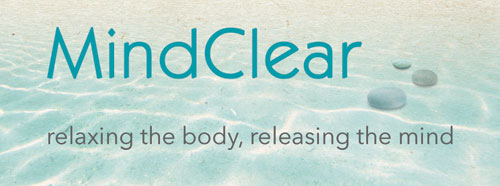WHAT IS SOPHROLOGY
Sophrology is a therapeutic, life-balancing technique that combines Eastern and Western disciplines to calm the mind and rid the body of tensions. It provides a ‘tool box’ of practical exercises, simple breathing techniques and gentle guided visualisations that can be used when and wherever needed.

The word sophrology comes from the Greek (sos – phren – logos) and means the “study of consciousness in harmony” or of the “harmonious mind”. It is a fusion of ancient Eastern and more recent Western philosophies and life-balancing techniques aiming to calm and focus the mind while relaxing and harmonising the body.
The technique is still relatively new in the UK but the number of qualified practitioners is on the increase thanks to the Kent-based Sophrology Academy which was founded in 2010.
Currently there are about 50 sophrologists working in the UK, many of them based in the London area. The Academy is a member of an internationally-recognised body of sophrology schools in France, the FEPS (la Federation des Ecoles pour la Sophrologie) and accredited by the ICNM (the Institute for complementary and Natural Medicine).
Sophrology has been growing in popularity on the continent since its creation 50 years ago. The exercises it promotes are simple, highly adaptable, require no special equipment or clothing and do not require much space as they are done either standing or sitting down. Once learnt, they can be used wherever and whenever needed. Sophrology is practised in group sessions for personal development or for common issues such as stress management or sleep and also in individualised one-to-one sessions to target specific problems.
Sophrology is especially valued as a complementary therapy in France, Switzerland, Belgium, Spain and Luxembourg where it is used to treat a wide range of issues from insomnia and depression to phobias and addiction. Other common areas for its practice include stress management and burnout, anxiety, lack of confidence, public speaking, exam and performance preparation (including sports), and childbirth. In these countries sophrology is considered so highly effective that GPs will often refer patients to a sophrologist as an alternative to prescribing medication and psychotherapists use the technique with their patients to assist with and ‘speed up’ recovery.
Alfonso Caycedo, the Spanish neuro-psychiatrist who created the method in the 1960’s spent over a decade in Europe and in the Far East looking for an alternative approach and techniques to those most commonly used by doctors at the time. He wanted to discover exactly what improved people’s physical and mental health in the fastest possible time and with lasting results. The technique evolved from Caycedo’s interest in Western relaxation techniques such as Autogenic Relaxation, the non-judgemental approach of Phenomenology and the Eastern disciplines of Yoga Tibetan Buddhism and Japanese Zen.
